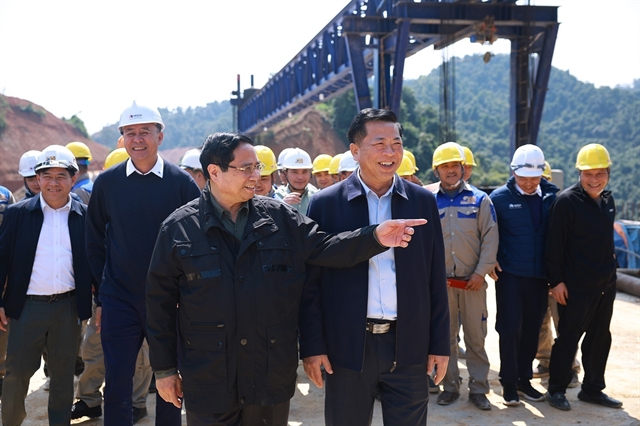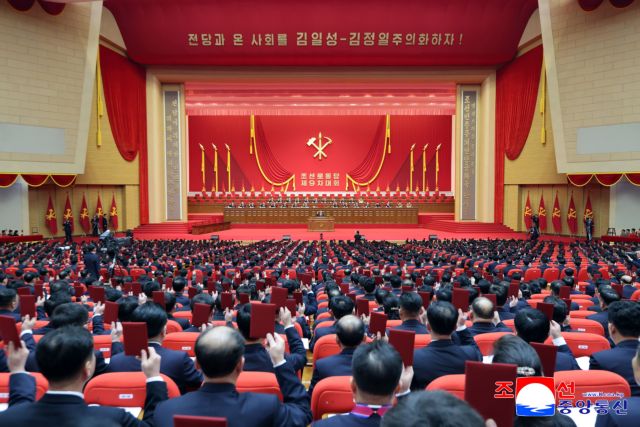 Economy
Economy
.jpg)

|
| Dr Nguyễn Quốc Hưng, vice chairman of VNQuantum and director of the VNU Institute for Quantum Technologies. — VNS Photo Mai Hương |
As Việt Nam looks to harness emerging technologies, Dr Nguyễn Quốc Hưng, Vice Chairman of VNQuantum and Director of the VNU Institute for Quantum Technologies, spoke to Việt Nam News about the nation’s potential in quantum technology and its future applications.
How is Việt Nam currently developing in the field of quantum technology?
Quantum physics has been taught and researched in Việt Nam since the 1960s, particularly at institutions such as the Vietnam Academy of Science and Technology and Vietnam National University, Hà Nội. We have world-class Vietnamese physicists both at home and abroad who have made significant contributions in this area.
However, technology is different from science. While Việt Nam has strong theoretical knowledge, we are behind in building advanced machines and applications due to limited investment, inadequate mechanisms, and a shortage of skilled human resources.
Many talented Vietnamese are working abroad, and attracting them back is crucial. With the right policies and real investment, I believe Việt Nam can build a competitive quantum technology sector.
Are we still only at the theoretical stage, without practical applications?
This situation is not unique to quantum technology; it is common across many fields, from semiconductors to AI. In Việt Nam, our AI research is strong in theory, but we lack the GPUs to run it effectively. The gap between theoretical knowledge and practical technological implementation is the challenge we must address.
Quantum technology shares this characteristic: while the principles are well understood, it has not yet entered everyday life.
At the fundamental level, we have the principles. But even when we can run experiments, errors remain, and there is little market demand. Leading global buyers are ready to invest billions of dollars, but the technology is not yet mature enough for practical use.
This is precisely the opportunity for Việt Nam. Currently, there are no significant technological barriers and investment requirements are moderate compared with sectors like satellites or rockets. With a reasonable level of investment, we can master the core technology and develop it further.
When quantum technology makes a breakthrough like ChatGPT did for AI, Việt Nam will already have the core knowledge and specialised skills to join the global market. After decades of international research, the world is now moving towards practical applications.
This is a rare chance for Việt Nam to master the technology, build independent capabilities and move from theory to real-world use, focusing on the most promising areas identified by global research.
Which sectors of the economy could benefit from quantum applications?
There are several. Việt Nam could start with supporting technologies, such as building classical machines that create quantum environments. These can be developed locally and are crucial to quantum computing or quantum communication.
At the same time, we must also pursue research in core areas like quantum encryption, quantum communication and networking. Some of these applications could enter daily life quickly if there is sufficient investment from the Government and the private sector.
Resolution 57 provides strong support for high-tech development and specifically mentions quantum technology multiple times.
Under Decision 1131 in June this year, quantum is listed as one of 11 strategic technologies with goals to master quantum computing, communication and encryption. This shows that quantum technology has been prioritised at the highest level.
How is Việt Nam preparing human resources for this field?
Quantum physics has been part of university curricula for decades. More recently, Vietnam National University, Hà Nội, has launched the region’s first master’s programme in quantum communication, set to admit students next year. Other universities, including Hanoi University of Science and Technology and Vietnam National University, HCM City, are also active.

|
| Products designed and manufactured using semiconductor technology, developed by teachers and students of the VNU University of Engineering and Technology. — VNA/VNS Photo |
We are starting with small cohorts of 30–60 students, but this will expand. Within one to two years, bachelor-level programmes are expected, creating a steady pipeline of talent. Semiconductor and electronics students can also be retrained in quantum, as they already have strong foundations.
In addition, collaboration is strengthening. Connections exist through personal and institutional networks. For example, Việt Nam is hosting five quantum physics conferences this October alone – something unprecedented. These events bring leading international scientists, including Nobel laureates, to Việt Nam.
Many Vietnamese researchers are also deeply involved in core technologies abroad, working with top experts. While the community is not yet large, it is growing fast and international collaboration is strengthening.
How can businesses and research institutes work together to accelerate applications?
Human resources remain the biggest challenge. We need to attract overseas Vietnamese experts back home. The launch of expert networks in quantum technology (VNQuantum) in August was a good initiative.
Meanwhile, many local companies are already showing interest, such as FPT, Viettel, CM and MK Group. For instance, MK Group recently hosted a 'Quantum Talk' to discuss how Việt Nam should move forward. Universities also signed memoranda of understanding with partners like Citigroup, which has identified quantum technology as a priority.
Regular discussions, events and pilot projects are already taking place every month. Strengthening partnerships between businesses and research institutions will be key to turning quantum from theory into real economic value. — VNS
.jpg)



